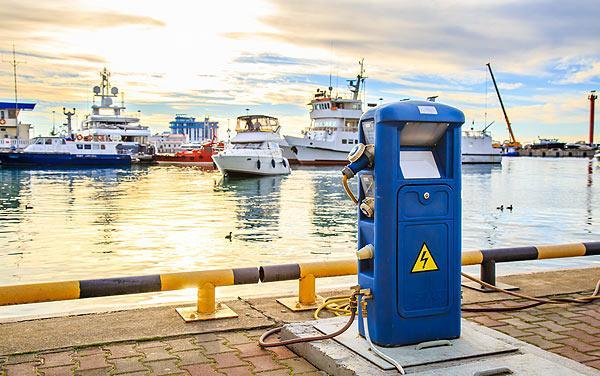A silent, environmentally friendly, odorless, and cost-neutral boat: utopia or reality? What if the electric boat were the solution to meet all these criteria?
An Ecological Alternative
Outings on electric motor boats have a significantly lesser impact on the marine environment compared to outings on thermally powered motor boats. Electric propulsion guarantees that no harmful exhaust gas emissions are possible.
Electric motors operate silently and without emitting vibrations harmful to aquatic biodiversity. Underwater noise pollution disrupts communication between certain marine species such as orcas. According to oceanographic studies, this stress the fish, making them more vulnerable to predators. Electric propulsion thus contributes to the preservation of marine and terrestrial biodiversity.
Furthermore, this silent operation contributes to restoring calm and tranquility to coasts, which may suffer from summer noise pollution.
A Question of Cost?
As you know, the main barrier to the expansion of the electric boat market is its price. Electric boats are still the most expensive on the boat market today. However, with changing usage patterns and increasing research, the development of this alternative is well underway. Therefore, one can hope for future price reductions through new innovations.
As fuel becomes scarcer and prices continue to rise, the electric solution, beyond its ecological benefits, could also be a less expensive alternative.
Practicality Matters
Most electric boats charge on standard 110 or 220-volt outlets, which are available in any port. Powering your boat can thus spare you a trip to the gas station. Evolving, today the average autonomy of electric boats is five hours, enough to ensure a good sea voyage.
An Offer in Tune with the Times
For now, the offer of electric alternatives for thermal motor boats is still quite limited. The offering of electric alternatives is still under construction, as many models with thermal engines have not yet found their ecological counterparts. Nevertheless, demand is indeed present according to industry professionals. Some specialists estimate that by 2030, electric propulsion will account for a third of boat purchases. The rise of the electric boat responds to a shift in boating practices.
Boaters are now increasingly interested in more ecological practices at the expense of performance. The focus is now more on leisurely cruising rather than achieving top speeds.

